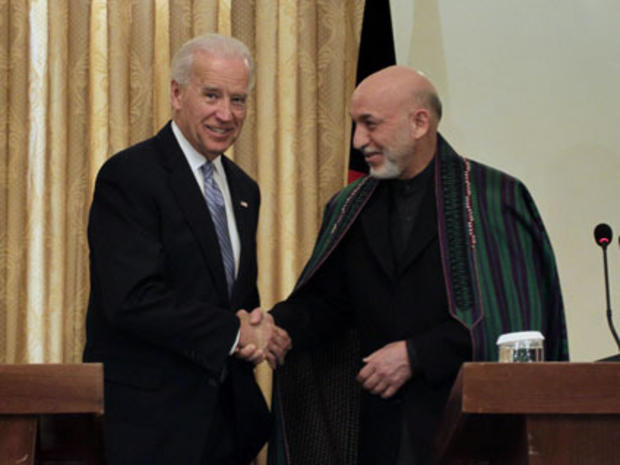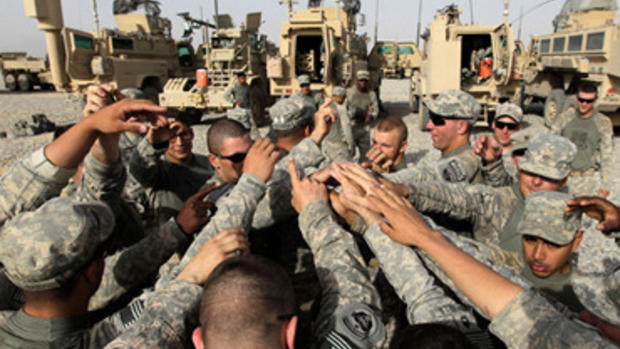Biden to Afghanistan: "We are Not Leaving if You Don't Want Us To"
During a surprise trip to Afghanistan today, Vice President Joe Biden told the Afghan government that the United States will maintain a presence in their nation as long as its leaders want the U.S. to stay.
"We are not leaving if you don't want us to leave," Biden said during a press briefing with Afghan President Hamid Karzai, according to reporters on the scene.
However, the vice president added, "It is not our intention to govern or to nation-build. As President Karzai often points out, this is the responsibility of the Afghan people and they are fully capable of it."
As part of its efforts to dismantle and defeat al Qaeda in the region, the U.S. military is currently training Afghan security forces with the goal of giving the Afghan troops full responsibility for security by 2014.
On NBC's "Meet the Press" last month, Biden said of Afghanistan, "We're going to be totally out of there come hell or high water by 2014."
A U.S. official tells CBS News White House correspondent Mark Knoller that Biden was not announcing a policy change when he said, "We are not leaving if you don't want us to leave." The official said Biden's comments were "completely consistent" with U.S. policy on Afghanistan and that the U.S. and NATO want an "enduring partnership" with Afghanistan beyond 2014.
The U.S. plans to begin withdrawing combat forces from Afghanistan in July of this year, but it is not clear whether a substantial number will come home. As Biden reiterated during his briefing with Karzai today, the United States' recent gains in the nation remain "fragile and reversible."
"There are many hard days that lie ahead," Biden said.
Biden said he sees "a viable path going forward" in the war, which is more than nine years old.
Under intense pressure to maintain gains in Afghanistan, the Pentagon decided last week to send 1,400 more U.S. Marines to the front lines and may send about another 1,500 in the spring, bringing the number of U.S. personnel in Afghanistan to approximately 100,000. American troops make up the bulk of the 140,000-strong NATO force there.
On "Meet the Press" last month and in other recent interviews, Biden likened the United States' current plan for Afghanistan to its efforts in Iraq.
President Obama in August of last year hailed the end of combat operations in Iraq, but about 50,000 troops remain there as part of a diplomatic and support mission. The remaining troops are a point of political contention in Iraq and are supposed to leave by the end of this year. However, there is speculation Iraqi Prime Minister Nouri al-Maliki may ask the U.S. to keep a small number of troops in his country to help with security.
Las month, Congress approved a Defense budget that alloted $158.7 billion for overseas combat -- that's about $3 billion a week the nation plans to spend on Iraq and Afghanistan.
CBSNews.com Special Report: Afghanistan


